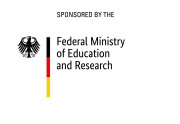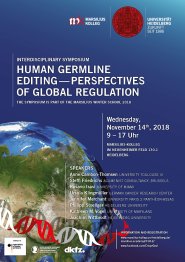Steffi Friedrichs
Chemistry, Public Policy AcumenIST, Brussels

Dr. Steffi Friedrichs has been an expert, policy advisor and business representative for emerging technological innovation for nearly 20 years. She is currently the Founder and Director of AcumenIST, an internationally active consultancy that drives the advancement of science- and technology-based innovations through proactive initiatives in the public and private sectors. Before joining AcumenIST, she worked for the OECD, where she developed its definition, indicators and impact assessment of biotechnology and nanotechnology and led two international workshops on genome editing.
Abstract
Advancements in the life sciences recently appear to have been dominated by the topic of genome editing. Owing to the breakthrough discovery of the CRISPR/Cas9 methodology (i.e. a system, based on an RNA-guided nuclease, that was shown to cleave target genome sequences with a high specificity) in 2012, genome editing became an easily accessible and applicable tool in genome modification laboratories around the world – ranging from agricultural research on plants and animals to environmental pest controls and to advanced medicine. Within this vast field of potential applications, it is the niche of human germline genome editing that is most hotly debated in scientific, regulatory and public fora.
This presentation aims to provide an overview of the debates that have hitherto been conducted on the topic of “human germline genome editing”, and to highlight the opinions aired by the various stakeholder groups (including the research community, various groups of medical practitioners, patient groups, the general public, policy makers, ethicists, and religious organizations); within these the expert research and medical practitioner communities occupy a pivotal position that merits a detailed analysis and discussion of arguments.
As with any other rapidly advancing and hotly discussed technological advancement, the presentation is to be understood as a mere snapshot of the current status of the debate on human germline genome editing. It will furthermore outline some societal and political contexts, in which the discussions need to be regarded, and draw some historical analogies, in order to ultimately inform the symposium and the winter school.






